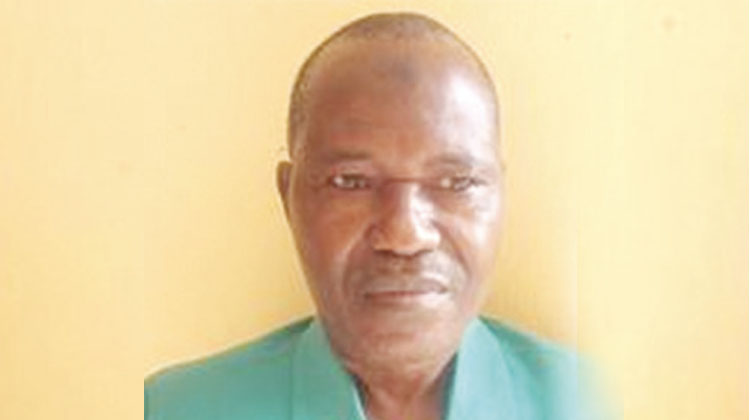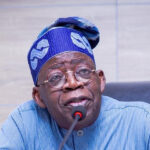
Budgeting in Nigeria is becoming interesting every year as the deficits continue to grow in line with the type or method of budget adopted by the government. That is, incremental budgeting. I can recall that in 2015, the Vice-President, Professor Yemi Osinbajo, toyed with the idea of zero budgeting, in which each year’s budget is stand-alone. This implies that projects or programmes for each year, whether on-going or not, will be budgeted for on the basis of new evaluation. It requires some technical skills and thus, retraining of the staff of the budget sections in various ministries, departments and agencies to understand what should be done.
Incremental budgeting, on the other hand, is simpler, as it involves addition or variations linked to the current budget, taking into account inflation rates and in some cases the rate of exchange in the preparation of a new budget. When the Vice-President opined on zero budgeting, I knew it would never be accepted, not only because of the technicalities but its ability to minimise corruption in the formulation and implementation of the budget. And this country needs redemption in that area. However, incremental budgeting is a global method of budgeting, thus we hardly see countries using zero budgeting, programme budgeting and performance budgeting. The United States that introduced zero budgeting had since abandoned it.
However, the Nigerian government has taken incremental budgeting to a ridiculous level. The budgets over the years, particularly under the present government, see deficits as part of the basics of incremental budgeting. As soon as the budget is passed by the National Assembly, the government comes up with a supplementary budget, and when the budget year is about to end the same government would quickly rush another supplementary budget, thus rendering the meaning of supplementary budget ludicrous. More embarrassing is that both the original and supplementary budgets are hinged on borrowing.
In December 2022, the National Assembly approved a supplementary budget for the government and in the same December 2022 the Assembly finalised deliberation and approved the 2023 appropriation which the President assented to in January 2023. What was the supplementary of 2022 meant for and when will it be spent and on what? When will the spending of the 2023 budget commence? Was the supplementary budget to settle the large members of the National Assembly that will not be returning, and the ministers plus multiple special and not-so-special assistants to office holders who will also be going home with humongous parting gifts? I have no answer!
Both the government and the National Assembly seem to be playing some games of deceit and taking Nigerians for granted. To confirm that the National Assembly members know what they are doing but do not care, the President of the Senate, Ahmed Lawan, a confirmed retiring legislator, advised that the next National Assembly should be wary of approving loans to the government. Of course, he will not be a beneficiary then!
We have warned many times that both internal and external borrowings have limitations in relation to economic development. There is always a threshold for these economic variables. There are measurements and there are grave implications for overshooting the threshold. We warned that debt to GDP ratio is a bad measure when it comes to debt accumulation, but debt to revenue ratio is the better measurement. The Minister of Finance, Budget and Planning, Zainab Ahmed, was more convenient with the former since that gave her the greater latitude to borrow. One does not know how she feels now that she has to use virtually all the revenue available to service debt and borrow money again to satisfy the appetite of gullible government officials and the legislature. Be assured that she feels on top of the world, otherwise she would not have presented the 2023 budget of N21.83tn with more than half of the fund coming from the debt market!
When the erstwhile Finance Minister, Kemi Adeosun, at the outset of this administration said that the country would have to borrow its way out of recession, I had a feeling that the country was heading towards a precipice. She was obsessed with external borrowing which was more beneficial to the lenders and facilitators than the borrower. Apart from institutional borrowing, she opened our eyes to diaspora bonds and possibly green bonds, among others. She toyed with the idea of borrowing foreign currencies to settle local debts and pay back in foreign currency in future when the economy would have recovered. We never recovered though, and we would not, given the high level of incompetence in economic management and the attendant massive corruption. As soon as Adeosun left prematurely, the Minister of State or the current Minister stepped in and continued with the doctrine of borrowing.
I explained in an interview at the time Adeosun was promoting debt-for-recession exit that external funds are used to buy goods and services produced abroad, thus creating jobs in the countries of suppliers of those goods and services. A specified proportion of such loans is paid to the facilitator for bringing business and income to the lenders. The benefits to the borrower would be the equipment brought in, and that is if they are the required international standards. Whatever the case then, the country is now in an external debt overhang, which is a situation in which the debt burden is so large that the country cannot take on additional debt to finance future projects. All earnings are used to pay off existing debt to the detriment of new investments and making the potential for defaulting much higher. That is where a country like Ghana and some other African countries have now found themselves.
One major problem that we have presently is not just revenue mobilisation but transparency in revenue accruals. There are serious leakages from revenue sources and declarations. Under the guise that there is a shortage of revenue, some people turned themselves into mosquitoes and elephants, swallowing billions of naira, as shown in the case of the Joint Admissions and Matriculation Board before the arrival of Professor Ishaq Oloyede, under the ‘watchful’ eye of Professor Dibu Ojerinde who was found to have also helped himself in the leakage processes.
Still, under the same guise, the Ex-Accountant General of the Federation helped himself to over N100bn as declared. We do not know the undeclared amount because an auditor’s report still indicted the office of the Accountant General for making a payment of N73bn to PIAs and MEAs for inspection and monitoring of oil and gas exports. The same thing happened to the pension fund fraud through the fingers of Abdulraheed Maina and in collaboration with Nigerian banks. Recently, the Auditor General of the Federation reported that the Nigeria National Petroleum Company Limited exported 17.877 million barrels or over $1bn worth of crude oil without records in four years. They are all incidents of inappropriate monitoring of revenue.
That brings us to the issue of budgets and auditors. There is what is referred to as a budget cycle or phase. From the public sector point, we have budget drafting, legislative or authorisation, implementation and auditing phases. Some professionals stand out clearly from the crowd in terms of credibility, audacity, and professionalism. The auditors are a group of such professionals and they are sometimes punished for their actions. One recalls how funds for the office of the Auditor General in the 2023 budget became a topical issue in the National Assembly. Members of the National Assembly noted and complained about the meagre allocation to the office. Many of the budget cycles in Nigeria ended at the implementation phase as the Auditor General’s report would not be released by the President for necessary actions.
The auditors have always been found to be thorough with their jobs. Thus, there are lots of indictments on corruption covered by the Presidency and many times with the connivance of the leadership of the National Assembly. It took a threat by then President-Elect, Major General Muhammadu Buhari(retd.), in 2015 before President Goodluck Jonathan released the Auditor General’s report for 2014. These days, even when the reports are released and people are indicted, the presidency or National Assembly just behaves as if nothing has happened. Albeit, the thoroughness witnessed at the federal level is missing at the state level, even when the budget cycle gets to that point. Things have to change for the better when a new Nigeria emerges. When will that be?





